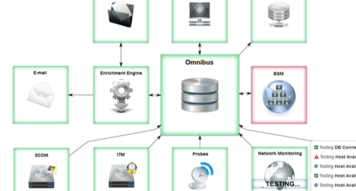Where were you?
Compose IT Nordic arrange ’service assurance days’ in Stockholm April 4-5. Close to 70 people gathered for two days to focus on solutions for service assurance and listen to market trends, strategies and technical advancement in some of the most interesting suppliers solutions.
What bother me is, where were you?
I bet, in your IT organization, as in most others, there is a focus on cost and the only time that is over trumped is when there are high priority incidents.
Then you spend resources on explaining and investigating a fault that affects the business. Both IT and the business loses money.
The risk is, because incidents is easy to understand, also for the non-IT business is that more money is spent on redundant, and often unnecessary complex systems and technical resources that can work with coming incidents.
The trouble with this chain of events that seems to repeat itself again and again is that the focus is in Incidents, and to get Incidents, something needs to break.
So instead of ’keeping the lights on’ we keep ‘turning it back on when it goes dark’. Always one step behind.
With a proactive approach where capacity, performance is continuously monitored and deviation is investigated and managed before it become incidents, proactive maintenance can be a reality and we could really start working with automation, self healing systems and efficiency.
Lower cost and higher quality.
To do this there is many things but two of them I continuously see being down prioritize. ’Build for operation’ and ’Service Assurance’ or in other words, monitoring and automation.
If systems, when designed and implemented accounted for monitoring, maintenance and operation, preferably automated. It would cost a fraction of the lifecycle spend but it would be both more effective and efficient!
In essence: ’more with less’.
But to do that, you need to know what’s possible.
So that leads me back to the question, where were you?
(If you don’t want to hold your breath until next year, get in touch and we’ll get you started).
Niklas Håkansson,
Service Assurance, Architecture and Business Development


